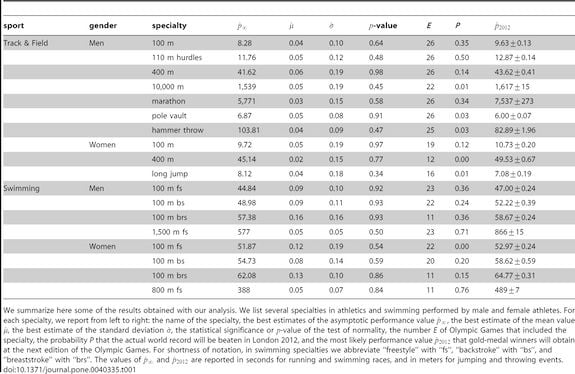How to Win Money by Predicting the Olympics
Statistics could help predict just how fast athletes will run and swim at this summer’s Olympics
/https://tf-cmsv2-smithsonianmag-media.s3.amazonaws.com/filer/Predict_olympics_388.jpg)
Where there’s competition, there’s prediction. The upcoming Olympics are no exception, of course, as mathematicians, dudes in bars and ex-athletes alike are trying to predict who will win what. But can math predict the outcome of the Olympics? Wired says: maybe.
They uncovered the research of Filippo Radicchi, a scientist who tried to model the properties of what makes a winning performance at the Olympics. Wired excerpts what he found:
At each new edition of the Games, gold-medal performances get, on average, closer to the limiting performance value. The average positive improvement observed in historic performance data can be motivated by several factors: as time goes on, athletes are becoming more professionals, better trained, and during the season have more events to participate in; the pool for the selection of athletes grows with time, and, consequently there is a higher level of competition; the evolution of technical materials favors better performances. On the other hand, there is also a non null probability that winning performances become worse than those obtained in the previous edition of the Games (i.e., relative improvement values are negative). All these possibilities are described by a Gaussian distribution that accounts for various, in principle hardly quantifiable, factors that may influence athlete performances: meteorological and geographical conditions, athletic skills and physical condition of the participants, etc.
This prediction holds for a whopping 55 different events, which means there is some mathematical way to try and predict the outcome. So, what times should you bet on? The math says this:

More at Smithsonian.com
/https://tf-cmsv2-smithsonianmag-media.s3.amazonaws.com/accounts/headshot/Rose-Eveleth-240.jpg)
/https://tf-cmsv2-smithsonianmag-media.s3.amazonaws.com/accounts/headshot/Rose-Eveleth-240.jpg)